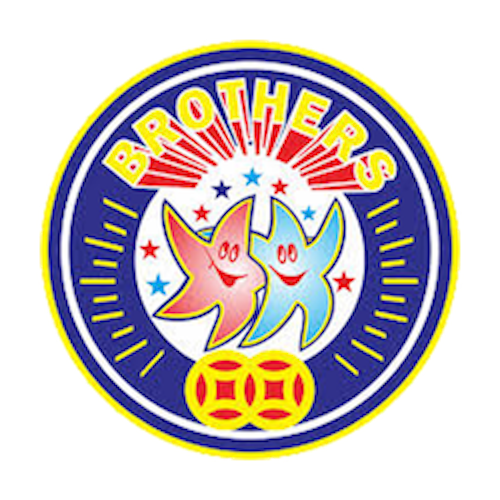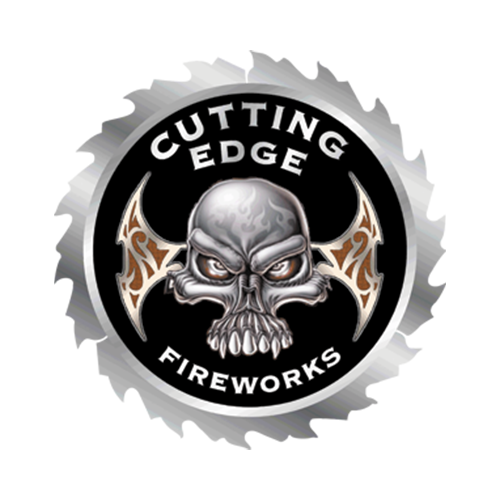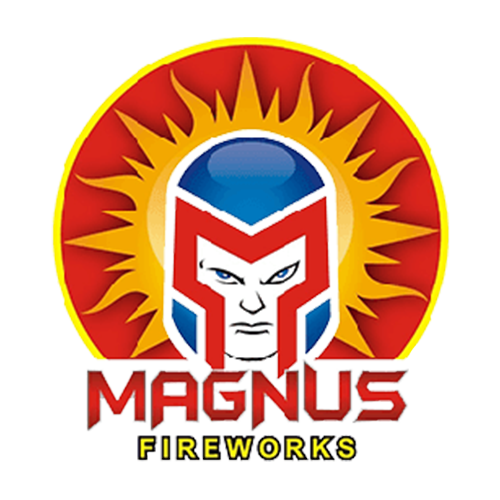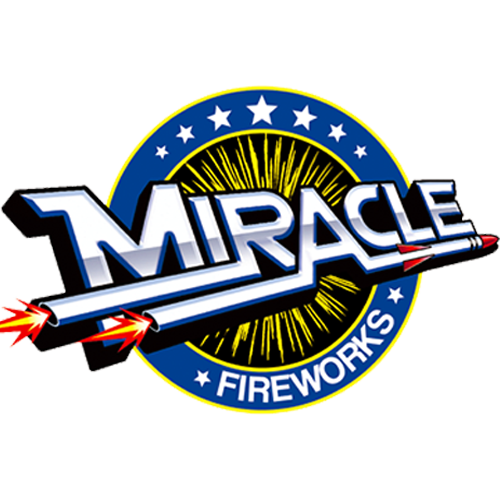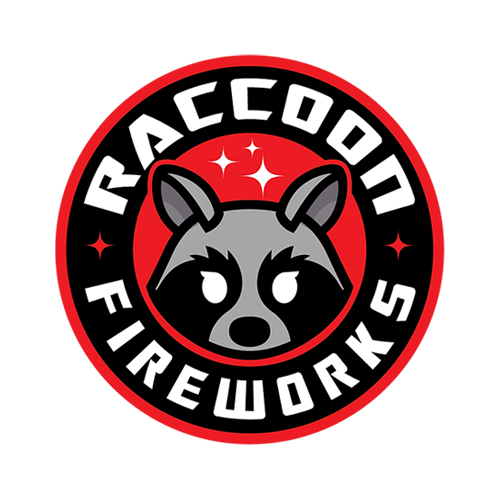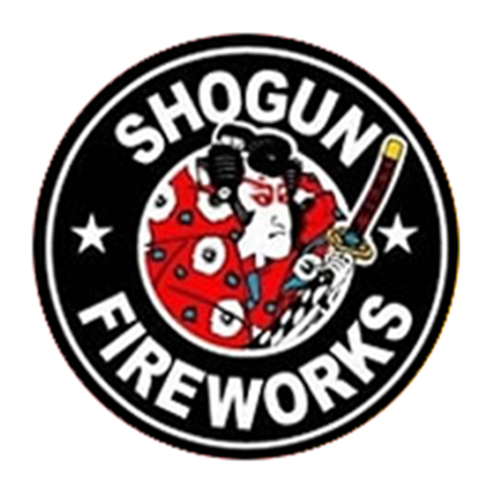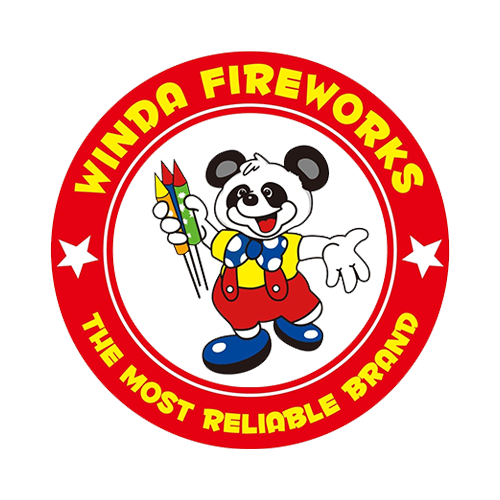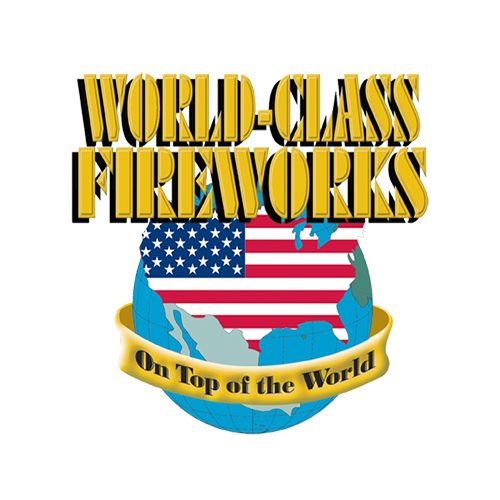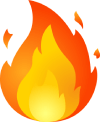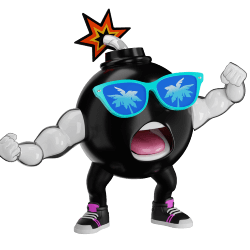HAWAII
§132D-1. Title.
This chapter shall be known and may be cited as the “Fireworks Control Law”.
§132D-2. Definitions.
As used in this chapter unless the context requires otherwise:
“Aerial device” means any fireworks containing one hundred thirty milligrams or less of explosive materials that produces an audible or visible effect and is designed to rise into the air and explode or detonate in the air or to fly about above the ground, and that is prohibited for use by any person who does not have a permit for display issued by a county under section 132D-16. “Aerial devices” classified as fireworks under UN0336 and UN0337 by the United States Department of Transportation as set forth in Title 49 Code of Federal Regulations include firework items commonly known as bottle rockets, sky rockets, missile-type rockets, helicopters, torpedoes, daygo bombs, roman candles, flying pigs, and jumping jacks that move about the ground farther than a circle with a radius of twelve feet as measured from the point where the item was placed and ignited, aerial shells, and mines.
“Articles pyrotechnic” means pyrotechnic devices for professional use similar to consumer fireworks in chemical composition and construction but not intended for consumer use that meet the weight limits for consumer fireworks but are not labeled as such, and that are classified as UN0431 or UN0432 by the United States Department of Transportation.
“Consumer fireworks” means any fireworks designed primarily for retail sale to the public during authorized dates and times, that produces visible or audible effects by combustion, and that is designed to remain on or near the ground and, while stationary or spinning rapidly on or near the ground, emits smoke, a shower of colored sparks, whistling effects, flitter sparks, or balls of colored sparks, and includes combination items that contain one or more of these effects. “Consumer fireworks” shall comply with the construction, chemical composition, and labeling regulations of the United States Consumer Product Safety Commission as set forth in Title 16 Code of Federal Regulations and fireworks classified as UN0336 and UN0337 by the United States Department of Transportation as set forth in Title 49 Code of Federal Regulations. “Consumer fireworks” include firework items commonly known as firecrackers that are single paper cylinders not exceeding one and one-half inches in length excluding the fuse and one-quarter of an inch in diameter and contain a charge of not more than fifty milligrams of pyrotechnic composition, snakes, sparklers, fountains, and cylindrical or cone fountains that emit effects up to a height not greater than twelve feet above the ground, illuminating torches, bamboo cannons, whistles, toy smoke devices, wheels, and ground spinners that when ignited remain within a circle with a radius of twelve feet as measured from the point where the item was placed and ignited, novelty or trick items, combination items, and other
fireworks of like construction that are designed to produce the same or similar effects.
“Cultural” means relating to the arts, customs, traditions, mores, and history of all of the various ethnic groups of Hawaii.
“Display” means the use of aerial devices, display fireworks, or articles pyrotechnic for any activity, including such activities as movie or television production.
“Display fireworks” means any fireworks designed primarily for exhibition display by producing visible or audible effects and classified as display fireworks or contained in the regulations of the United States Department of Transportation and designated as UN0333, UN0334, or UN0335, and includes salutes containing more than two grains (one hundred and thirty milligrams) of explosive materials, aerial shells containing more than forty grams of pyrotechnic compositions, and other display pieces which exceed the limits of explosive materials for classification as “consumer fireworks”. This term also includes fused setpieces containing components, which together exceed fifty milligrams of salute power. The use of display fireworks shall be prohibited for use by any person who does not have a display permit issued by a county.
“Fireworks” means any combustible or explosive composition, or any substance or combination of substances, or article prepared for the purpose of producing a visible or audible effect by combustion, explosion, deflagration, or detonation and that meets the definition of aerial device or consumer or display fireworks as defined by this section and contained in the regulations of the United States Department of Transportation as set forth in Title 49 Code of Federal Regulations. The term “fireworks” shall not include any explosives or pyrotechnics regulated under chapter 396 or automotive safety flares, nor shall the term be construed to include toy pistols, toy cannons, toy guns, party poppers, pop-its, or other devices which contain twenty-five hundredths of a grain or less of explosive substance.
“Import” (and any nounal, verbal, adjectival, adverbial, and other equivalent form of the term used interchangeably in this chapter) means to bring or attempt to bring fireworks into the State or to cause fireworks to be brought into the State, and includes fireworks labeled or designated as samples, even if not intended for retail sale.
“License” means a nontransferable, formal authorization, valid for a period not to exceed one calendar year from the date of issuance and which the department is hereby authorized to issue under this chapter, to engage in the act or acts specifically designated herein.
“Permit” means a nontransferable, formal authorization, valid for a period not to exceed one calendar year from the date of issuance and which a county is hereby authorized to issue under this chapter, to engage in the act or acts specifically designated herein.
“Pyrotechnic composition” or “pyrotechnic contents” means the combustible or explosive component of fireworks.
§132D-3. Permissible uses of consumer fireworks.
Consumer fireworks may be set off, ignited, discharged, or otherwise caused to explode within the State
only:
(1) From 9:00 p.m. on New Year’s Eve to 1:00 a.m. on New Year’s Day; from 7:00 a.m. to 7:00 p.m. on Chinese New Year’s Day; and from 1:00 p.m. to 9:00 p.m. on the Fourth of July; or
(2) From 9:00 a.m. to 9:00 p.m. as allowed by permit pursuant to section 132D-10 if the proposed cultural use is to occur at any time other than during the periods prescribed in paragraph (1);
provided that the purchase of not more than five thousand individual consumer fireworks commonly known as
firecrackers shall be allowed under each permit.
§132D-5. General prohibitions.
(a) It shall be unlawful for any person without a permit issued under section 132D-10 by a county fire department to:
(1) Remove or extract the pyrotechnic contents from any fireworks;
(2) Throw any ignited fireworks:
(A) From, at, or into a vehicle;
(B) At a person or an animal; and
(C) From above the first floor of any building; or
(3) Set off, ignite, discharge, or otherwise cause to explode any fireworks:
(A) Above the first floor of any building;
(B) In any vehicle;
(C) At any time not within the periods for use prescribed in section 132D-3;
(D) Within one thousand feet of any operating hospital, licensed convalescent home, licensed
home for the elderly, zoo, licensed animal shelter, or licensed animal hospital;
(E) In any school building, or on any school grounds and yards without first obtaining
authorization from appropriate school officials;
(F) On any highway, alley, street, sidewalk, or other public way; in any park; on any public beach; in any officially designated forest or wildlife preserve; within fifty feet of a canefield; or within one thousand feet of any building used for public worship during the periods when services are held; and
(G) Within five hundred feet of any hotel.
(b) It shall be unlawful to purchase consumer fireworks more than five calendar days before the time periods for permissible use under section 132D-3.
(c) It shall be unlawful to sell consumer fireworks after 12:01 a.m. on New Year’s Day, 6:00 p.m. on Chinese New Year’s Day, and 8:00 p.m. on the Fourth of July.
§132D-7. License or permit required.
A person shall not:
(1) Import, store, offer to sell, or sell, at wholesale or retail, aerial devices, display fireworks, articles pyrotechnic, or consumer fireworks unless the person has a valid license issued by the county; or
(2) Possess aerial devices, display fireworks, or articles pyrotechnic without a valid license to import, store, or sell aerial devices, display fireworks, or articles pyrotechnic, or a valid display permit as provided for in this chapter.
§132D-8. Application for license.
(a) All licenses required under section 132D-7 shall be issued by the county and shall be nontransferable. Licenses to import shall specify the date of issuance or effect and the date of expiration, which shall be March 31 of each year. The application shall be made on a form setting forth the date upon which the importations are to begin, the address of the location of the importer, and the name of the proprietor or, if a partnership, the name of the partnership and the names of all partners or, if a corporation, the name of the corporation and the names of its officers. If the state fire council or county discovers at a later date that a licensee has been convicted of a felony under this chapter, the licensee’s license shall be revoked and no new license shall be issued to the licensee for two years.
(b) Each storage, wholesaling, and retailing site shall be required to obtain a separate license. The license shall specify the date of issuance or effect and the date of expiration, which shall be March 31 of each year. The application shall be made on a form setting forth the date upon which the storage, sale, or offers for sale are to begin, the address of the location of the licensee, and the name of the proprietor, or, if a partnership, the name of the partnership and the names of all partners or, if a corporation, the name of the corporation and the name of its officers. Any license issued pursuant to this chapter may be revoked by the county if the licensee violates any
provision of this chapter or if the licensee stores or handles the fireworks in such a manner as to present an unreasonable safety hazard.
(c) It shall be unlawful for any licensee, other than a wholesaler who is selling or transferring fireworks or articles pyrotechnic to a licensed retailer, to sell or offer to sell, exchange for consideration, give, transfer, or donate any fireworks or articles pyrotechnic at any time to any person who does not present a permit duly issued as required by section 132D-10 or 132D-16. The permit shall be signed by the seller or transferor at the time of sale or transfer of the fireworks or articles pyrotechnic, and the seller or transferor shall indicate on the permit the amount and type of fireworks or articles pyrotechnic sold or transferred. No person shall sell or deliver fireworks to any permittee in
any amount in excess of the amount specified in the permit, less the amount shown on the permit to have been
previously purchased; provided that no fireworks shall be sold to a permittee holding a permit issued for purposes of section 132D-3, more than five calendar days before the applicable time period under section 132D-3.
(d) Aerial devices, display fireworks, or articles pyrotechnic shall only be sold or transferred by a wholesaler to a person with a valid permit under sections 132D-10 and 132D-16. No person with a valid permit under sections 132D-10 and 132D-16 shall sell or transfer aerial devices, display fireworks, or articles pyrotechnic to any other person.
(e) Any license issued pursuant to this chapter shall be prominently displayed in public view at each licensed location.
§132D-8.5. Importation of aerial devices, display fireworks, or articles pyrotechnic for display.
Aerial devices, display fireworks, or articles pyrotechnic shall only be imported and stored, if necessary, in an amount sufficient for an anticipated three-month inventory; provided that if a licensee under section 132D-7 provides aerial devices, display fireworks, or articles pyrotechnic for displays as allowed under section 132D-16 more than once a month, the licensee may import or store, if necessary, sufficient aerial devices, display fireworks, or articles pyrotechnic for a six-month inventory.
§132D-8.6. Requirements of licensee.
(a) Any person who has obtained a license under section 132D-7 and ships fireworks or articles pyrotechnic into the State shall:
(1) Clearly designate the types of fireworks or articles pyrotechnic in each shipment on the bill of lading or shipping manifest with specificity;
(2) Declare on the bill of lading or shipping manifest the gross weight of aerial devices, consumer fireworks, display fireworks, and articles pyrotechnic to be imported in each shipment and the location of the storage facility, if applicable, in which the fireworks or articles pyrotechnic are to be stored;
(3) Prior to shipment and when booking each shipment of fireworks or articles pyrotechnic notify the appropriate county official as determined by the county regarding whether the shipment will be distributed from:
(A) Pier to pier;
(B) Pier to warehouse or storage facility; or
(C) Pier to redistribution; and
(4) At the time shipping is booked, the importer or consignee shall notify the appropriate county official as determined by the county in writing of the expected shipment’s landing date.
(b) The fire department of a county, in which a shipment of fireworks or articles pyrotechnic has landed and becomes subject to the jurisdiction of the fire department, shall be allowed to inspect, if it chooses, any shipment declared on the shipping manifest as fireworks or articles pyrotechnic.
(c) The facility in which fireworks or articles pyrotechnic are to be stored shall:
(1) Have received approval fifteen days prior to the shipment’s arrival from the appropriate county fire department; and
(2) Meet all state and county fire and safety codes.
(d) Any fireworks or articles pyrotechnic landed in the State shall be subject to seizure and forfeiture if:
(1) The importer or consignee does not have in the importer’s or consignee’s possession a valid license to import fireworks or articles pyrotechnic under section 132D-7;
(2) The consignee does not have a valid license to store fireworks or articles pyrotechnic under section 132D-7; or
(3) The fireworks or articles pyrotechnic have not been declared or have been misdeclared in violation of subsection (a).
(e) No person holding a retailer license to sell consumer fireworks shall be allowed to sell consumer fireworks commonly known as firecrackers in a packet size larger than five thousand individual units. Any person violating this subsection shall be guilty of a misdemeanor.
(f) Any person violating subsection (a), (c), or (d) shall be subject to the following for shipments of fireworks or articles pyrotechnic of:
(1) Twenty-five pounds or less gross weight shall be a petty misdemeanor;
(2) Over twenty-five pounds to three hundred pounds gross weight shall be a misdemeanor;
(3) Over three hundred pounds to ten thousand pounds gross weight shall be a class C felony; and
(4) More than ten thousand pounds gross weight shall be a class B felony.
§132D-9. Application for permit.
The permit required under section 132D-10 or 132D-16 shall be issued by the county or its authorized designees and be nontransferable. The county or its authorized designees shall issue all permits for which complete applications have been submitted and which contain only correct information. The permit shall specify the date of issuance or effect and the date of expiration but in no case for a period to exceed one year. The permit for the purchase of consumer fireworks for the purposes of section 132D-3 shall not allow purchase for more than one event as set forth in section 132D-3. The application shall be made on a form setting forth the dates for which the permit shall be valid, the location where the permitted activity is to occur, and the name of the proprietor or, if a partnership, the name of the partnership and the names of all partners or, if a corporation, the name of the corporation and the names of its officers. The permit application may be denied if the proposed use of fireworks or articles pyrotechnic presents a substantial inconvenience to the public or presents an unreasonable fire or safety hazard. Any permit issued pursuant to this chapter shall be prominently displayed in public view at the site.
§132D-10. Permits.
A permit shall be required for the purchase and use of:
(1) Any consumer fireworks commonly known as firecrackers upon payment of a fee of $25;
(2) Any aerial devices, display fireworks, or articles pyrotechnic for the purposes of section 132D-16 upon
payment of a fee of $110; and
(3) Any consumer fireworks for the purposes of section 132D-5 or for cultural uses that occur at any time other than during the periods prescribed in section 132D-3(1) upon a payment of a fee of $25.
§132D-11. Fee.
(a) The fee for the license required under section 132D-7 shall be $3,000 for importers, $2,000 for each wholesaler’s site, $1,000 for each storage site, and $500 for each retailer’s site for each year or fraction of a year in which the licensee plans to conduct business and shall be payable to the county. The license fees shall be used solely by each county fire department to pay for the salary of an auditor of fireworks and articles pyrotechnic records and all expenses incurred to fulfill the duties required, including the inspection of inventory and storage facilities, maintenance of required records, and the training of the auditor. The auditor shall monitor strict inventory and recordkeeping requirements to ensure that sales of fireworks or articles pyrotechnic are made only to license or
permit holders under this chapter. The county shall provide an exemption from the fees under this section to
nonprofit community groups for importation and storage of fireworks or articles pyrotechnic for displays once a year.
(b) The fee for the license required under section 132D-7 shall be the fee specified in subsection (a) for each year, fraction of a year, or event in which the licensee plans to conduct business and shall be payable to the county in which the permitted activity is to occur.
§132D-12. Sale to minors; sale by minors; prohibited.
It shall be unlawful for any person to offer for sale, sell, or give any fireworks or articles pyrotechnic to minors, and for any minor to possess, purchase, sell, or set off, ignite, or otherwise cause to explode any fireworks or articles pyrotechnic, except as provided in section 132D-13.
§132D-13. Liability of parents or guardians.
The parents, guardian, and other persons having the custody or control of any minor, who knowingly permit the minor to possess, purchase, or set off, ignite, or otherwise cause to explode any fireworks or articles pyrotechnic, shall be deemed to be in violation of this chapter and shall be subject to the penalties thereunder, except that the parents or guardian may allow the minor to use consumer fireworks while under the immediate supervision and control of the parent or guardian, or under the supervision and control of another adult.
§132D-14. Penalty.
(a) Any person:
(1) Importing aerial devices, display fireworks, or articles pyrotechnic without having a valid license under section 132D-7 shall be guilty of a class C felony;
(2) Purchasing, possessing, setting off, igniting, or discharging aerial devices, display fireworks, or articles pyrotechnic without a valid permit under sections 132D-10 and 132D-16, or storing, selling, or possessing aerial devices, display fireworks, or articles pyrotechnic without a valid license under section 132D-7:
(A) If the total weight of the aerial devices, display fireworks, or articles pyrotechnic is twentyfive pounds or more, shall be guilty of a class C felony; or
(B) If the total weight of the aerial devices, display fireworks, or articles pyrotechnic is less than twenty-five pounds, shall be guilty of a misdemeanor;
(3) Who transfers or sells aerial devices, display fireworks, or articles pyrotechnic to a person who does not have a valid permit under sections 132D-10 and 132D-16, shall be guilty of a class C felony; and
(4) Who removes or extracts the pyrotechnic contents from any fireworks or articles pyrotechnic and uses the contents to construct fireworks, articles pyrotechnic, or a fireworks or articles pyrotechnic related device shall be guilty of a misdemeanor.
(b) Except as provided in subsection (a) or as otherwise specifically provided for in this chapter, any person violating any other provision of this chapter, shall be fined not more than $2,000 for each violation.
(c) The court shall collect the fines imposed in subsections (a) and (b) for violating this chapter and, of the fines collected, shall pay twenty per cent to the State and eighty per cent to the county in which the fine was imposed which shall be expended by the county for law enforcement purposes.
(d) Notwithstanding any penalty set forth herein, violations of subsection (a)(1) or (3) may be subject to nuisance abatement proceedings provided in part V of chapter 712.
§132D-15. Notice requirements.
Each licensed retail outlet shall post adequate notice that clearly cautions each person purchasing fireworks of the prohibitions, liabilities, and penalties incorporated in sections 132D-12, 132D-13, and 132D-14.
§132D-17.5. County ordinances.
(a) Nothing in this chapter shall be construed to supersede or in any manner affect a county fireworks ordinance; provided that the ordinance is at least as stringent in the control or prohibition of fireworks as the law under this chapter.
(b) Nothing in this chapter shall prohibit a county from enacting ordinances that are more stringent in the control or prohibition of fireworks than this chapter.
§132D-20. Enforcement.
This chapter shall be enforced by each county. The counties are authorized to enforce and administer the
provisions of this chapter.
§132D-21 Health care facilities; report of fireworks and articles pyrotechnic incidents.
Health care facilities in this State shall report all incidents of serious injuries and fatalities caused by legal and illegal fireworks or articles pyrotechnic to the department of health and the police department of the county in which the person was attended or treated. All reports shall be in writing or in the manner specified by the department of health.
As used in this section, “health care facilities” includes any outpatient clinic, emergency room, or physician’s office, private or public, whether organized for profit or not, used, operated, or designed to provide medical diagnosis, treatment, nursing, rehabilitative, or preventive care to any person or persons. The term includes but is not limited to health care facilities that are commonly referred to as hospitals, extended care and rehabilitation centers, nursing homes, skilled nursing facilities, intermediate care facilities, hospices for the terminally ill that require licensure or certification by the department of health, kidney disease treatment centers, including freestanding hemodialysis units, outpatient clinics, organized ambulatory health care facilities, emergency care
facilities and centers, home health agencies, health maintenance organizations, and others providing similarly organized services regardless of nomenclature.


